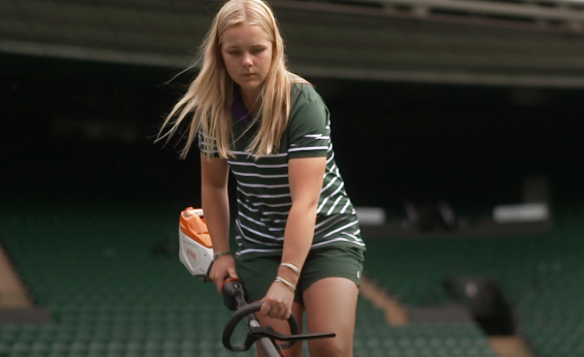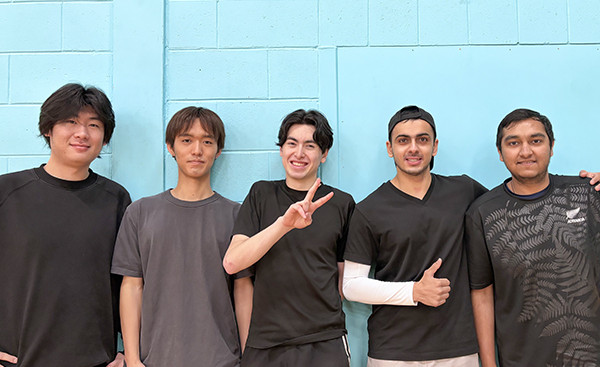Retiring Acting Deputy Vice-Chancellor on Lincoln's amazing future
02 September 2022 | News
Ask retiring Acting Deputy Vice-Chancellor Dr Lorraine Petelo what she enjoyed most about her time at Lincoln University, and she will say without hesitation: the people.
“Lincoln is an absolutely amazing place, and what makes it so special is the people who work here.
“I’ve loved working with the academic and professional teams and understanding what they do; they’re all so good at their jobs and so dedicated to the University.
“Also adding in the student voice to the general discourse has enhanced the quality of our decision-making across the University.
“When our people come together to find solutions or work through an issue, we’re able to express our opinions and argue our views robustly but also respectfully. And while we do have differences in opinion and approach, as you’d expect in a university, we listen to each other and always support each other.
“We’re just like an extended family!”
COVID-19 outbreak
That collegiality and mutual respect was never more evident than in early 2020, when the COVID-19 outbreak reached Aotearoa’s shores, and the University needed to move swiftly and decisively to implement Emergency Remote Teaching (ERT), which Lorraine says was a resounding success, given the pandemic environment.
“I think people were sceptical that we would be able to deliver ERT in the short time we had available and with our limited resources, but our academics did exceptionally well to develop and implement the University’s first online-only learning system, and especially to such a high quality.
“I know that period was extremely stressful for staff across the University as everyone had to adapt to new ways of doing things while at the same time coping with lockdown, work and family upheavals and the ongoing effects of the pandemic.
“But our efforts have positioned the University really well, and going forward our staff will be supported in developing even better blended learning models. I’m very proud of that achievement.”
Lincoln Connected
Lorraine was the co-business owner (with then-Deputy Vice-Chancellor Professor Grant Edwards) of the Lincoln Connected Programme (the strategic offering of selected certificate, diplomas and degrees in a fully online, asynchronous learning environment), which was launched in July 2020.
In 2022, as many as 15% of Lincoln’s enrolled students are now studying a Lincoln Connected programme.
COVID-19
COVID also brought together staff members and student representation from across LU to form the Corona Virus Academic and Student Experience Working Group (CASEWG), the multi-unit task force that was formed to guide the University’s operations during the various government-mandated alert levels, mandates, traffic lights and vaccination programmes.
Holding the role of Assistant Vice-Chancellor Learning and Teaching at the time, Lorraine was instrumental in setting up CASEWG, which she says is a case study in bringing together people from diverse roles throughout the university to consider issues from across the academic success and student experience spectrum, and action strategies to ensure continuity of service.
“It was a very intense time, but also really satisfying to experience a group of people working together so effectively under such extreme circumstances. Again, I think that’s a uniquely Lincoln thing.”
Chair of the Academic Board
Lorraine was appointed Chair of the Academic Board in 2016, a role she has relished and which has afforded her oversight of the quality of the University’s teaching and research programmes and the opportunity to monitor, develop and implement academic policy.
“Our approach is all about making continual improvements and always looking for ways to raise the quality of our programmes and our student experience.”
A major focus of the Academic Board has been on ensuring that students remain at the core of Lincoln University’s reason for being, and that the University continues to direct its resources into enhancing the student experience through academic excellence in its teaching and research.
“The Lincoln University Strategy 2019 – 2028 has focused our efforts very effectively and ensured that we understand what our purpose is and enabled better communication of our offering.
“We have a very promising future ahead as we continue to grow and meet the needs of the land-based sector in Aotearoa and internationally.
“I’m very happy with the progress we’ve made, though we still have a way to go. For instance it’s going to take a while to cement in our bicultural campus, but we are now on the journey.”
Equity in education
And for the passionate advocate of equity in education, working alongside Deputy Vice-Chancellor Māori and Pasifika Dr Dione Payne to effectively embed Manaaki Tauira into the Lincoln culture has been another success story for Lorraine, and within that the Learner Success Framework and the Learner Success Investment Plan. But handing over her responsibility for Manaaki Tauira/Learner Success to her successor will be bittersweet.
“We are now making good headway in addressing equity requirements at Lincoln University, and while it’s enormously satisfying to see the progress we’ve made, knowing that the next stage will be somebody else’s responsibility will be quite hard.
“But it’s exciting for the next person, and I think it will be a great achievement for Lincoln.”

Forging partnerships
Lorraine cites another highlight of her work at Lincoln, and perhaps a largely unseen aspect of her tenure, as her successful collaborations with the Student Engagement team on recruitment initiatives, and particularly her work with the International Team on their overseas recruitment drives.
“Travelling overseas to meet with prospective students and their families and developing relationships with other universities and partner organisations was very rewarding, and then seeing the realisation of all that hard work when the students arrived at Lincoln to study was so satisfying.”
Unconventional career trajectory
For someone who ended up at the head of Lincoln University’s highest-level academic committee, Lorraine came from relatively humble origins, beginning her career as a primary school teacher at Foxton Primary School.
Harbouring ambitions to become a teacher of English as a second language, she attended Massey University as an adult student, first earning a Bachelor of Education before gaining her Diploma in Second Language Teaching.
However, she never did get to teach English as a second language after gaining her qualification, as by then she’d been bitten by the study bug; first achieving a Masters of Education (Distinction) at University of Canterbury, followed by a PhD in Education, then a Graduate Diploma in Management.
“After my PhD I made the decision not to pursue the traditional academic life and head into research, but instead turned my focus to management where I wanted to make my mark by improving access to tertiary education for everyone.”
She has certainly achieved that goal, and as she relinquishes the role she’s held for the last seven months on 2 September, she leaves satisfied with the high quality of teaching and research at Lincoln and buoyed by the exciting future ahead of the University.

What’s next?
Aside from doing lots of gardening and organising her and husband Leatuavao’s recently-rebuilt house, Lorraine will be spending some of her well-earned retirement back here at Lincoln University, as an Honorary Professorial Fellow, where she will continue as an associate supervisor for a PhD student.
What will she miss most about her 11 years at Lincoln?
“I will miss the people of course!
“But I’ve loved everything about my roles here. I thought it would be easy to leave, but it’s proving not to be.
“Lincoln has an amazing future ahead, and it will be a bit hard not to be part of that.”


